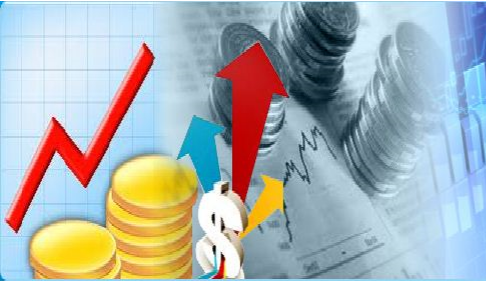We’re all aware with investment and trading opportunities in markets like equity, debt, and cryptocurrency, but commodity trading in india is gaining pace recently. Commodities can be bought and sold, just like stocks and other financial instruments. People buy commodities in anticipation of a price increase, and once that price is reached, they sell and profit. The price might obviously drop, resulting in a loss.
Commodities are traded in India on two markets: the spot market and the futures market. All current transactions are included in the spot market. That is to say, if you buy a commodity today, you will receive it at the current market price immediately.
The futures market, as the name implies, deals with future transactions. It means that your transaction will be completed at a later time, but at the same price as it is now. India’s commodities exchanges include the National Commodity & Derivatives Exchange Limited (NCDEX), the Multi Commodity Exchange of India Limited (MCX), and the Indian Commodity Exchange Limited (ICEX).
The International Commodity Exchange has merged with the National Multi-Commodity Exchange (NMCE). From Monday through Friday, the commodity market’s trading hours are 10:00 a.m. to 11.30 p.m. / 11.55 p.m. IST. The National Commodity & Derivatives Exchange Limited allows you to trade barley, chana, and other grains and cereals (NCDEX).
The Multi Commodity Exchange of India Limited (MCX) allows traders to trade bullion, such as gold and silver, as well as their variations (such as mini), base metals (such as aluminium, brass, copper, and so on), energy (such as crude oil and natural gas), and agricultural products such as cotton, rubber, and palm oil, as well as spices such as black pepper.
Agricultural products, plantation (rubber), and fibre (jute) as well as commodities such as diamonds and steel can all be traded on the ICEX.
Let’s take a closer look at the risk and reward features of commodity trading.
Commodity trading has a lot of advantages. You can trade commodity futures with a modest amount of money because they are highly leveraged securities. As a result, you can stake a higher amount than with another asset class. Furthermore, these markets are usually extremely liquid, making entry and exit relatively easy. Finally, they have a substantial profit margin.
However, it comes with its own set of dangers. They can be a bit erratic at times (but that may be a plus for some traders). Newcomers to the market should proceed with caution. Because leverage multiplies everything, you can only benefit if you are a disciplined trader.
Trade crypto in australia with , leveraged Cryptocurrency trading allows to take both long & short positions on Bitcoin & Ethereum.
The Commodity Derivatives Market Regulation Department of the SEBI regulates the commodity market (CDMRD). Traders must pay commodity transaction taxes (CTT). GST is also charged on brokerage, exchange, and warehouse costs, as well as actual product delivery. A stamp duty is also required to be paid.
Another market into which one might venture is currency trading. Banks, corporations, central banks (such as the RBI in India), investment management firms, hedge funds, retail forex brokers, and retail investors all participate in these markets. The currency or FX market is the name given to this market (foreign exchange market).
In these markets, currency futures are traded, and there is also a spot market for them. Currency futures are normally traded between the hours of 9.00 a.m. and 5.00 p.m. on platforms provided by exchanges such as the NSE, BSE, and MCX-SX.
In a few ways, trading currencies varies from trading other asset classes. In this situation, there is no actual delivery, and you trade in two currencies. Consider the INR/USD exchange rate, which indicates how many INR units are required to buy one USD unit. If you want to take a chance on the INR rising, you can buy INR using USD. When the currency rate rises as projected, you can record a profit by selling the INR.
It’s worth emphasising that currency trading is especially risky because of the enormous number of variables involved. It is not advisable to use leveraged funds, especially for beginners.
Finally, both commodities and currency trading have the potential to be extremely rewarding. One option for gaining market knowledge and expertise is to enrol in structured courses offered by industry veterans. However, as previously noted, execution is critical, and a trader can only win if they are self-aware. So keep your goals and resources in mind, as well as your readiness to take chances. Check out FinLearn Academy’s course on the subject!







